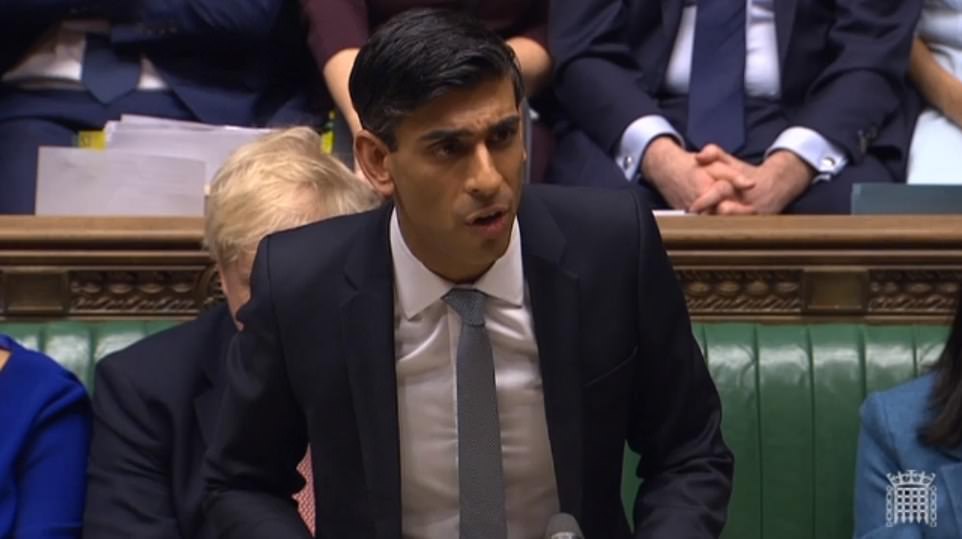
Coronavirus measures

- £5bn emergency response fund to support the NHS and other public services.
- As previously announced, statutory sick pay (“SSP”) will be paid to all those who are advised to self-isolate, even if they have not presented with the virus symptoms.
- Self-employed workers who are not eligible for SSP will be able to claim contributory Employment Support Allowance (“ESA”). The ESA benefit will be available from day one, not after a week as the benefit is now.
- £500m hardship fund for councils to help the most vulnerable individuals in their areas.
- Businesses with fewer than 250 employees will have the cost of SSP for any employee off work for coronavirus for up to 14 days refunded by the government in full.
- Small firms will be able to access a "business interruption" loan fund, for loans of up to £1.2m to be provided by banks but guaranteed by the Government.
- Business rates in England will be abolished for firms in the retail, leisure and hospitality sectors with a rateable value below £51,000. Firms eligible for small business rates relief, who will not benefit from the business rates reliefs, will get a £3,000 grant cash
- HMRC to scale up its time to pay service (team that deals with applications for taxpayers to delay or set up tax payment plans) with a dedicated helpline starting today which will provide advice to business and the self-employed on deferring tax payments over an agreed period of time.
Personal Taxation
- As previously announced, the tax threshold for National Insurance Contributions will rise from £8,632 to £9,500, this will create a saving of £104 per year for those earning more than £9,500. The raise in the threshold will take 500,000 employees out of the tax system altogether, according to Government figures. Understanding how this increase in the threshold interacts with qualifying for state pension and other benefits needs to be understood.
- The tapered annual allowance thresholds for pension contributions will be raised by £90,000. Currently, if an individual’s total income before pension contributions is above £150,000 the £40,000 annual pension contribution allowance is reduced for £1 for every £2 of income over that limit, until taxable income reaches £210,000, where the total contribution is fixed at £10,000. The £150,000 limit will increase to £240,000, so there will be no taper impact for those who earn below this amount and the tapering provisions will now impact those who have an adjusted gross income of more than £240,000.
- For those whose total income is above £300,000, the annual allowance will reduce from the current £10,000 to £4,000 from 6th April 2020.
- The Chancellor in his speech referred to making the change, because of the way the current rules impact on NHS staff who were restricting the hours they worked or leaving the profession. However, the change applies to all high earners.
- The lifetime allowance for pensions will increase with CPI to £1,073,100.
- A 2% stamp duty land tax surcharge (“SDLT”) on non-UK residents purchasing residential property in England and Northern Ireland will apply from 1 April 2021. Based on the Budget announcement at the time of the election, this surcharge will be in addition to the 3% surcharge for second homes, which could mean the possible top rate of SDLT for overseas buyers rising to 17%.
- The capital gains tax allowance, the amount of exempt capital gain on the disposal of a chargeable asset, will increase for individuals to £12,300 and for trustees to £6,150 from 6th April 2020. (Currently £12,000).
- The lifetime allowance for entrepreneurs’ relief, will be reduced from £10m to £1m. More details in the business section of this update.
- The rules on gains on life insurance policies on which a taxpayer can claim Top Slicing Relief will be amended, to allow the taxpayer’s personal allowance to be reinstated within the calculation for relief. This provides additional relief for taxpayers whose entitlement to the personal allowance has been reduced because a gain is included as part of their income.
- Legislation will be introduced to implement the recommendations from the independent review of the Loan Charge which will apply retrospectively from 5 April 2019. The recommendations can result in some taxpayers who were originally caught by the Loan Charge, may now be outside of the tax regime. See our January newsletter for more details.
- No other new announcements on income tax or national insurance, including no increase in the personal allowance for the 2020/21 tax year, which remains at £12,500.
- Fuel duty to be frozen for the 10th consecutive year.
- Duties on spirits, beer, cider and wine to be frozen. (The Government plans to consult on the duty-free limits on alcohol and cigarettes available to airline and ship passengers in a post-Brexit world).
- Tobacco taxes will continue to rise by 2% above the rate of retail price inflation. This will add 27p to a pack of 20 cigarettes and 14p to a packet of cigars.
- Long haul rates of air passenger duty will increase in line with retail price index (RPI). Short haul rates are frozen pending a review of departure taxes.
- The 5% VAT on women's sanitary products, known as the tampon tax, to be scrapped.
- From 1st December, digital publications (newspapers, magazine, e-books) which are currently taxed at 20%, whereas printed publications have been exempt from VAT, will also be exempt VAT.
- Zero-emission cars registered from 1 April 2017 with a list price of £40,000 or more will be exempt from road tax until 31 March 2025. (The Government will also provide £129.5m to extend the Plug-in Grants for vans, taxis and motorcycles to 2022-23). The Vehicle Excise Duty rates for other cars, vans and motorcycles will increase inline with the retail price index.
Businesses
Business rates
- Business rate discounts for pubs to rise from £1,000 to £5,000 this year.
- System of High Street business rates to be reviewed later this year.
Entrepreneurs' Relief

- One of the big stories trailed before the Budget was Entrepreneurs’ Relief (“ER”) being abolished, as we had highlighted in our newsletters since November 2019. The 10% capital gains tax rate charged when a business owner sells their business, part of their business or shares in their trading company.
However, ER will be retained, but the lifetime allowance will be reduced from £10m to £1m, which was the allowance when the relief was first introduced in 2008. The allowance reduction takes immediate effect from the day of the Budget. The Chancellor advised that retaining relief, but reducing the allowance was based on representations made by the Federation of Small Business, to benefit those small business owners, who are unlikely to sell their business for more than £1m (or £2m for a husband and wife owned business).
In addition to the lifetime allowance being reduced, anti-forestalling measures introduced covering a period from April 2019 to the day of the Budget are being introduced to catch artificial transactions (ie not commercial), instigated solely to capture the 10% tax rate before the changes, or unconditional contracts or to certain elections made following an exchange of shares.
This is one area of the Budget where detailed technical guidance and draft legislation was issued very quickly, which would indicate that the measure was planned well in advance of the Budget.
Corporation Tax
- Confirmation that the long-planned cut in the corporation tax rate to 17% will not take place and the rate will remain at 19%.
- The structural and buildings allowance for capital allowances introduced in 2018, will increase from 2% to 3% from April 2020. The tax break affects businesses incurring qualifying expenditure on non-residential structures and buildings newly constructed, or renovated, on or after 29 October 2018.
- Research & development (“R&D”) expenditure credit which applies in the main to large companies, will increase from 12% to 13%.
- For small companies falling under the SME (small and medium enterprise) scheme, the PAYE cap on the payable tax credits due to be introduced this year, has now been delayed until 1 April 2021. This benefits those who are primarily using subcontractors for their research and development work, where the companies’ PAYE liabilities may be minimal. The proposed cap will restrict the cash payment for R&D to three times the claimant company’s PAYE and NIC liabilities for any given year, but at least it is delayed.
- From 1st April 2020 large companies will be restricted to using 50% of their carry forward capital losses.
- Companies investing in new plant or machinery for use in designated assisted areas within Enterprise Zones will continue to qualify for the 100% first year capital allowance, until at least 31 March 2021.
- Measures brought in to deal with the already announced change, that non-UK resident property-owning companies from 1 April 2020, will pay UK corporation tax, not income tax.
Other Business Tax Measures
- The employment allowance (the amount up to which an employer doesn’t have to pay employer NIC), will be increased from £3,000 to £4,000 from 6th April 2020.
- The van benefit in kind charge will increase to £3,490 from 6th April – the amount on which the taxable benefit for an employee is calculated. The flat rate van fuel benefit charge will increase to £666.
- From April 2021, full first year capital allowances at 100% will be restricted to zero emission cars only. Cars emitting between 1 and 50 g/km will receive 18% allowances in a business’s general pool, and those over 50 g/km will fall into the special rate pool for a much lower tax allowance rate of 6%. The latter is a huge reduction from the current threshold of 110 g/km.
- Benefit in kind charges on zero emission cars will be 0% of list price from 6 April 2020, increasing to 1% for 2021/22 and then 2% the year after. Most other percentage rates are also decreasing by 2% for 2020/21. The taxable benefit for company cars is calculated by reference to the published CO2 emissions. This will be changed, to be aligned with the worldwide Light Vehicle Test Procedure for all new cars registered after April 2020.
- The fuel scale charge, the amount on which the taxable benefit for an employee who has their fuel paid for by their employer, will increase to £24,500 from £24,100.
- Red diesel subsidies - will be scrapped "for most sectors" in two years' time but will remain for farmers and rail operators.

- The maximum flat rate a business owner can claim for use of his home as an office has been increased from £4 per week to £6 per week with effect from April 2020. (It is possible to claim a higher amount if the individual can substantiate a figure with records of actual expenditure and a sensible apportionment method).
- From April 2022, a plastic packaging tax will apply at a rate of £200 per tonne of plastic packaging which does not contain at least 30% recycled plastic. This will apply to plastic packaging which has been manufactured in, or imported into, the UK.
- HMRC will revert back to having some preferential status in a business administration, from 1 December 2020, which will adversely impact other creditors.
With the 2020 tax year end rapidly approaching, take a look at our tax planning checklist, to make sure you don’t miss out on any tax savings.
Contact us now if you need help and advise on any of the above matters. 01452 713277



